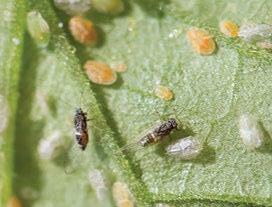
11 minute read
YOUR PRODUCTION

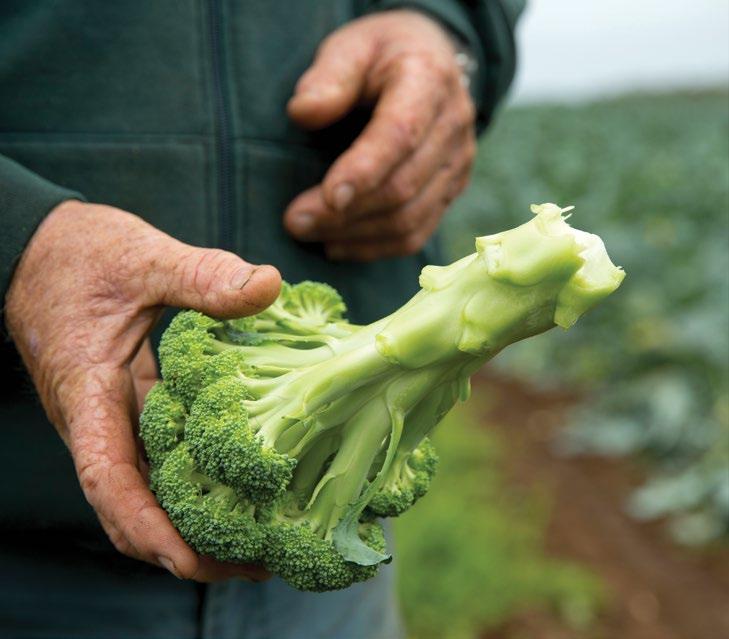
Advertisement
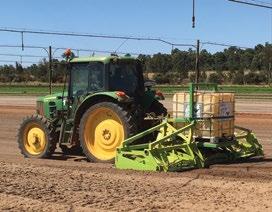
productionyour
Introducing THECARBON SERIES for Aussie vegetable growers
BY DIMI KYRIAKOU AND CARL LARSEN RMCG
The Soil Wealth and Integrated Crop Protection (ICP) project works with growers to put soil management and plant health research into practice.
To kick off 2022, the Soil Wealth ICP team has developed the Carbon Series to provide a high-level overview of carbon farming in Australia and how it can apply to vegetable growers, particularly through improved soil carbon management practices. Soil Wealth ICP Phase 2 (VG16078) is a strategic levy investment under the Hort Innovation Vegetable Fund. Phrases such as ‘carbon neutral,’ ‘carbon accounting,’ ‘soil carbon sequestration’ and ‘carbon emissions reduction’ are becoming increasingly common when policymakers talk about Australian agriculture. These terms can be summarised under the heading of ‘carbon farming.’
Generally, it refers to a deliberate set of agricultural practices or land uses to increase carbon stored in the soil and vegetation (sequestration), and reduce greenhouse gas emissions from livestock, soil, or vegetation (avoidance). Carbon farming can offer landholders financial incentives to reduce greenhouse gas
emissions within their production system or sequester carbon, in addition to achieving economic and environmental co-benefits through increased productivity and sustainability. Carbon farming can range from a single change in land management — such as introducing no-till cultivation, cover crops or changing Carbon farming can offer landholders financial incentives to reduce greenhouse gas emissions. grazing management — to a whole-of-farm integrated plan which maximises carbon capture and reduces emissions. The good news is that vegetable growers can build on their existing production processes, particularly around improving soil health, to make the transition to carbon farming. Growers should consider the management of carbon in their growing operations not only to reduce greenhouse gas emissions, but to increase productivity through sustainable soil management practices.
f CARBON farming refers to a deliberate set of agricultural practices or land uses to increase carbon stored in the soil and vegetation, and reduce greenhouse gas emissions.
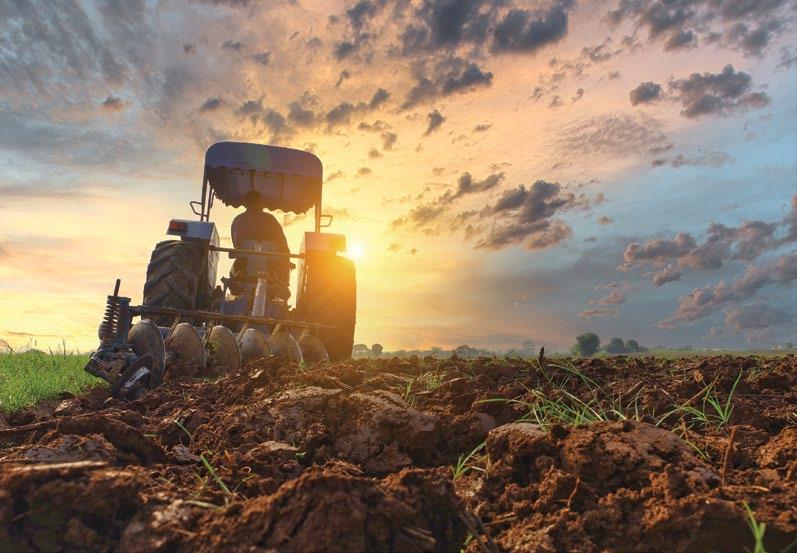
Carbon farming involves practices that: • Improve the rate at which carbon dioxide (CO2) is removed from the atmosphere and converted to plant material and/or soil organic matter • Reduce greenhouse gas emissions, measured as CO2 equivalents, from agriculture.
About The Carbon Series
A new four-part Carbon Series from the Soil Wealth ICP project breaks down the practicalities of carbon farming for vegetable growers and looks more closely at soil carbon management. It provides links to further information and project resources on the following topics: • Part 1: Carbon farming and its relevance to Australian vegetable growers • Part 2: Soil carbon and carbon sequestration • Part 3: Carbon emissions in vegetable production • Part 4: Carbon accounting and the
Emissions Reduction Fund.
These articles can be accessed at soilwealth.com.au/resources/globalscan-and-reviews
You can also tune into a podcast where the team speaks to Mulgowie Farming Company and Carbon Friendly about their journey to develop carbon neutral sweet corn in Queensland. Access the podcast here: soilwealth.com.au/ resources/podcasts/the-carbon-seriesdeveloping-carbon-neutral-sweet-corn/ To wrap up the series you can watch the webinar recording on carbon management on vegetable farms — emissions, sequestration and beyond: soilwealth.com.au/ resources/webinar-recordings/carbonmanagement-on-vegetable-farmsemissions-sequestration-and-beyond/
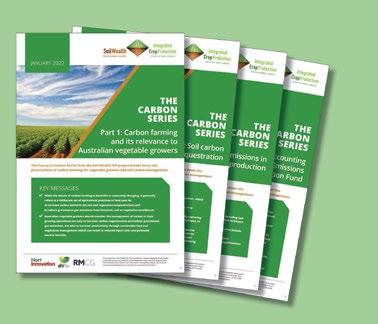
Food for thought
While carbon farming is a possible option for many Australian vegetable growers, the practicalities of implementing this approach on-farm will depend on the individual circumstances of each business and its goals.
Managing soil carbon — a key player in overall soil health — can increase productivity and reduce the cost of production with the added benefit of reducing greenhouse gas emissions.
There may also be marketing benefits for a business and the creation of a more resilient farm from a climate and consumer perspective. While there may not always be direct financial benefits from reducing greenhouse gas emissions and carbon sequestration, there can be co-benefits around increased resilience and sustainability including increased biodiversity and water use efficiency, and reduced waste, pesticide, and fertiliser use.
To make an informed decision about carbon farming, vegetable growers will need to consider their individual business goals and production circumstances — from the scale of the business to opportunity costs of changing farming practices — and keep on top of changes in the sector as they arise.
f THE four-part Carbon Series breaks down the practicalities of carbon farming for vegetable growers and looks more closely at soil carbon management.
New focus topics underway for Soil Wealth ICP in 2022!
The Soil Wealth ICP team is in full swing tackling the focus topics for the project in 2022. The team is continuing to dig into the complex world of soil
biology and how it relates to
the entire farming system, including its relationship with integrated crop management practices, soil-borne diseases, irrigation, pest management and nutrition management.
The project is also focusing on
integrated pest management (IPM) both in the field and in
protected cropping systems. Growers are being taken back to basics to explain soil health's role in IPM, discussing the management of chemicals to minimise resistance and exploring supply chain requirements including tolerance levels for the presence of beneficial insects. You can find all new events, resources and demo site information which align with these areas of importance to vegetable growers and the wider industry at
soilwealth.com.au
MORE INFORMATION
For more information, please contact project leaders Dr Gordon Rogers on (02) 8627 1040 or gordon@ahr.com.au and Dr Anne-Maree Boland on (03) 9882 2670 or anne-mareeb@rmcg.com.au.

This project has been funded by Hort Innovation using the vegetable research and development levy and funds from the Australian Government.
Project Number: VG16078
For more information on the fund and strategic levy investment visit horticulture.com.au
New WHS laws
f AS an industry, agriculture has always ranked as one of the most dangerous.
Farm businesses must get serious about managing workplace health and safety
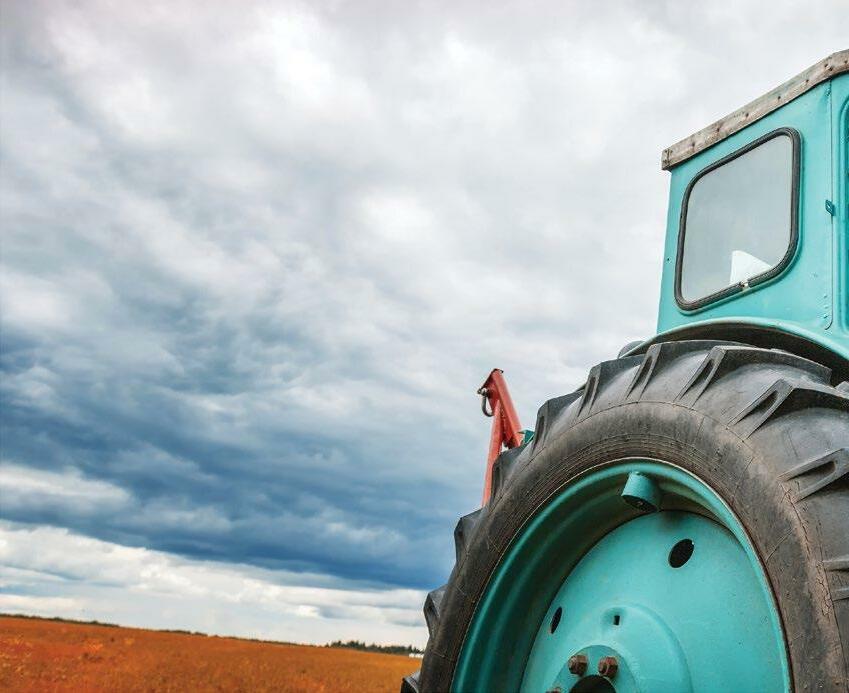
BY TYSON FRY FARM BUSINESS CONSULTANT, PLANFARM
New Work Health and Safety (WHS) laws that came into effect in January 2022 have been well publicised with the focus especially on the inclusion of industrial manslaughter as an offence. On close inspection, it becomes apparent that the risk of being charged as such, is very low. However, the risk of being charged for a lesser offence is very real if a business does not proactively manage WHS. Thus, if you are the owner of a farm business, you’d better take this seriously and to do so you will most probably need help from an expert!
As an industry, agriculture has always The Work Health and Safety Act 2020 ranked as one of the most dangerous. (WHS Act) was passed by Western Participants are constantly exposed to the risks that come with working outside, with animals, with chemicals, with heavy machinery, at heights and in confined spaces. Australian Parliament in November 2020. Implemented in January 2022, this legislation consolidates workplace health and safety under a single Act, bringing WA largely in line with laws already in place for other states Agricultural workers are constantly exposed torisks. In many instances, those working in agriculture are also working alone. It is vital that those and territories. working in agriculture are equipped with the skills to carry out their work safely. This requires employers to have developed and implemented appropriate workplace health and safety policies and procedures. This is especially important in an environment where the laws governing workplace health and safety are becoming stronger. This legislation provides a framework to further protect the health, safety and welfare of workers in WA, while providing more clarity for modern employment relationships such as contractors and casual employees, alongside traditional employer employee relationships. WorkSafe will continue to act as an independent authority to administer the WHS Act, with the WorkSafe Commissioner reporting directly to the Minister for Industrial Relations.
f IN many instances, those working in agriculture are also working alone.
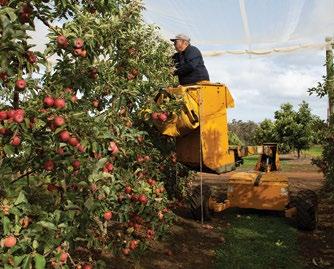
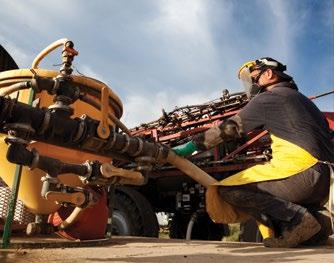

The Act has made several significant changes that will have real implications for agricultural businesses. For example; 1 The definition of an employer has changed: • Under the current Act, an employer is defined as a person that employs an employee under a contract of employment. • Under the new WHS Act, there are now two new definitions to consider. — Person Conducting a Business or Undertaking (PCBU): includes corporations, associations, partnerships, sole traders that employ people to carry out work. — Officer: includes a person that makes or participates in making key decisions that affect the business or undertaking. A CEO, CFO or Farm Manager are examples of an Officer. 2 The definition of an employee has changed: • Under the current Act, an employee is defined as a person by whom work is done under a contract of employment. • Under the new WHS Act, an employee is now referred to as a worker. • A worker is defined as a person who carries out work for a PCBU and includes, but is not limited to, employees, contractors, subcontractors, apprentices, and volunteers. • It is important to recognise that the expanded definition of a worker will have implications for livestock producers, specifically in relation to the use of shearing contractors or vets. 3 Expanded duty of care requirements for a PCBU and an Officer:
The duty of care requirements for a PCBU and an Officer have been expanded under the new WHS Act.
There is also an expectation that due diligence has been conducted and reasonable steps have been taken to: • Keep up-to-date knowledge on work health and safety matters. • Understand the operations of the business and associated hazards and risks. • Ensure resources are available to eliminate or minimise risks. • Ensure there are processes to receive and consider information about work-related incidents, hazards and risks, and to then respond.
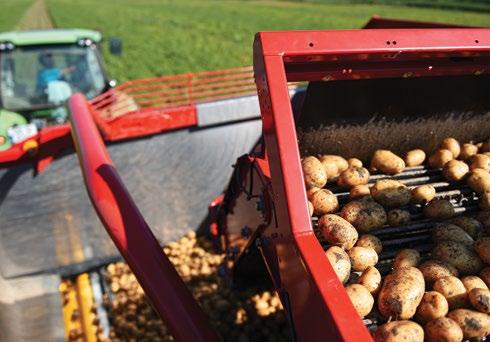
Category 2:
The PCBU or Officer fails to comply with their health and safety duty and the failure exposes the worker to a risk of death, injury or harm. • Maximum penalty: $350,000 fine for a company officer, $170,000 for any other person, or $1,800,000 for a company. Category 1:
The PCBU or Officer fails to comply with their health and safety duty. • Maximum penalty: $120,000 fine for a company officer, $55,000 for any other person, or $570,000 for a company.
• Ensure there are processes for complying with WHS duties and obligations. • Verify the use of resources and processes. 4 Insurance will no longer cover fines and penalties: • Insurance can still cover legal fees; however, insurance will not cover penalties or fines for companies, PCBUs or Officers under the new WHS Act.
5 Industrial Manslaughter has been included as an offence: • The offence of Industrial Manslaughter will apply to PCBU’s and their Officers where a failure to comply with a WHS duty causes a death. • The prosecution must prove beyond reasonable doubt that the person knew their conduct was likely to cause the death of, or serious harm to, an individual and they acted in disregard of that likelihood. • The maximum penalty for Industrial Manslaughter is $10 million for a body corporate, and $5 million and 20-years jail for an individual. • In the highly-publicised 2020 case where a worker died while building a shed on an Esperance farm, the director of the shed building company was charged with Gross Negligence under the current Act. The director was found guilty and received an 8-month jail term, with an additional 18 months suspended.
His company was also fined $605,000. • It is likely that under the new
WHS Act, the director would have been prosecuted for Industrial
Manslaughter, and the penalty would have been even more severe.
Given the extremely high bar set by the new WHS Act when it comes to Industrial Manslaughter, it is not an offence that farm businesses should focus too closely on. A PCBU or Officer will only be sentenced with Industrial Manslaughter if it can be proven that they knew their conduct was likely to cause death or serious harm, and then disregarded that risk.
Lesser offence categories
There are three lesser offence categories that businesses need to be aware of given they still come with large fines and the risk of jail time. Category 3: The PCBU or Officer fails to comply with the health and safety duty and the failure causes death or serious harm. • Maximum penalty: 5 years imprisonment and a $680,00 fine for a person, or a fine of $3,500,000 for a company.
What should businesses do?
For farm businesses that already apply a best practice approach to managing health and safety (there aren’t that many of these), it is unlikely that a radical overhaul will be required. However, if you haven’t already, it’s important to review your existing work health and safety policies Keep up-to-date knowledge on work health and safety matters. and procedures to ensure they are appropriate. It is also important that senior management are aware of their responsibilities and have received appropriate training. There are a few organisations that offer support to businesses when it comes to work health and safety. Please discuss these options with a member of the Planfarm team who will point you in the right direction. Ultimately, businesses that are proactive in this space will be much better placed to manage the risks of farming in WA under the new legislation.
MORE INFORMATION
Contact Tyson Fry, Farm Business Consultant, on 0437 207 725 or go to







